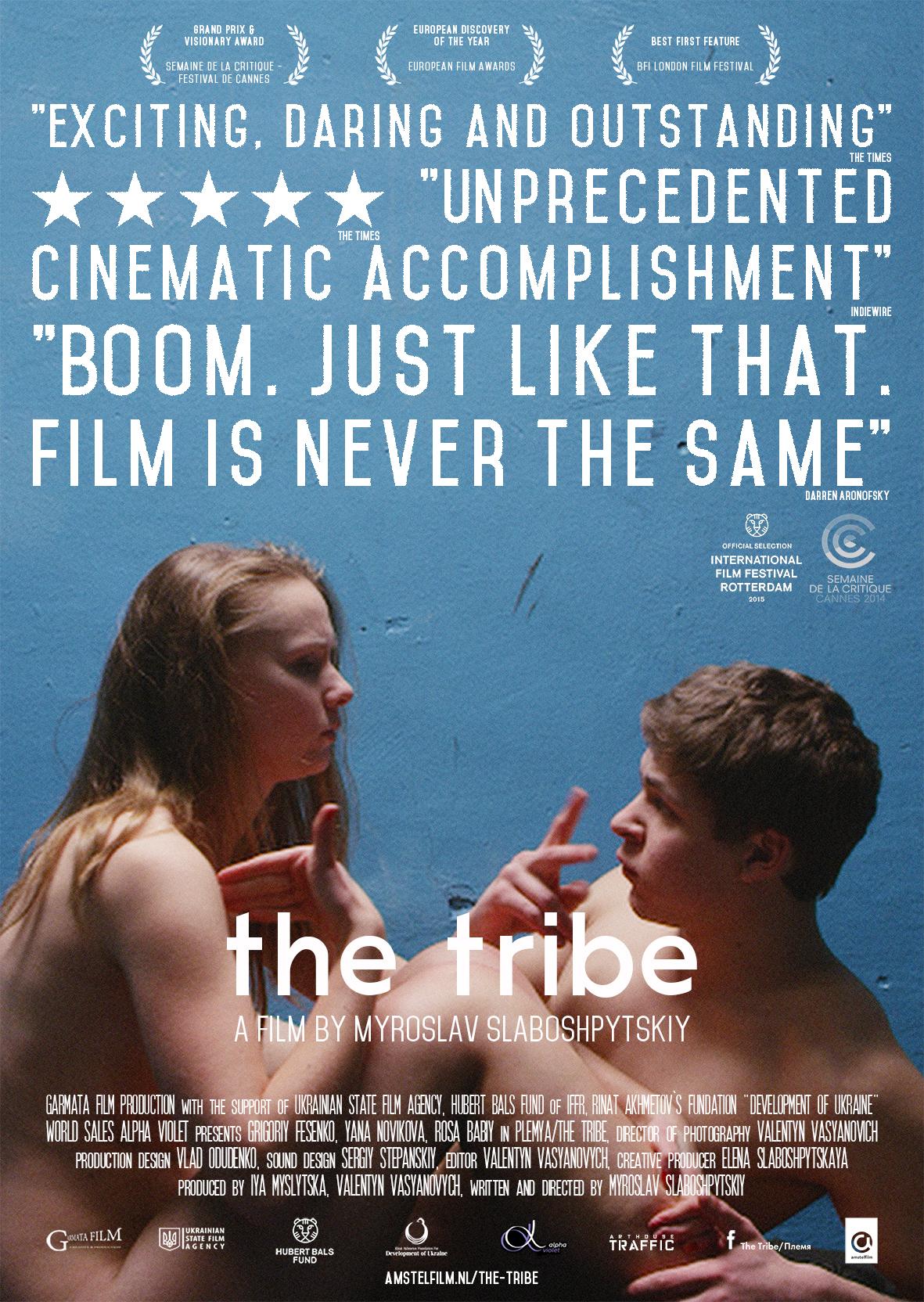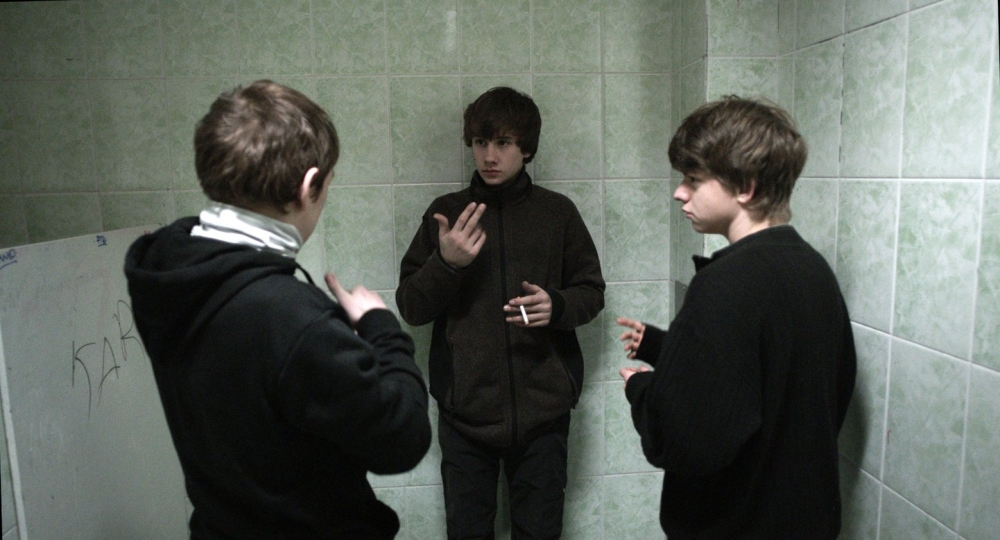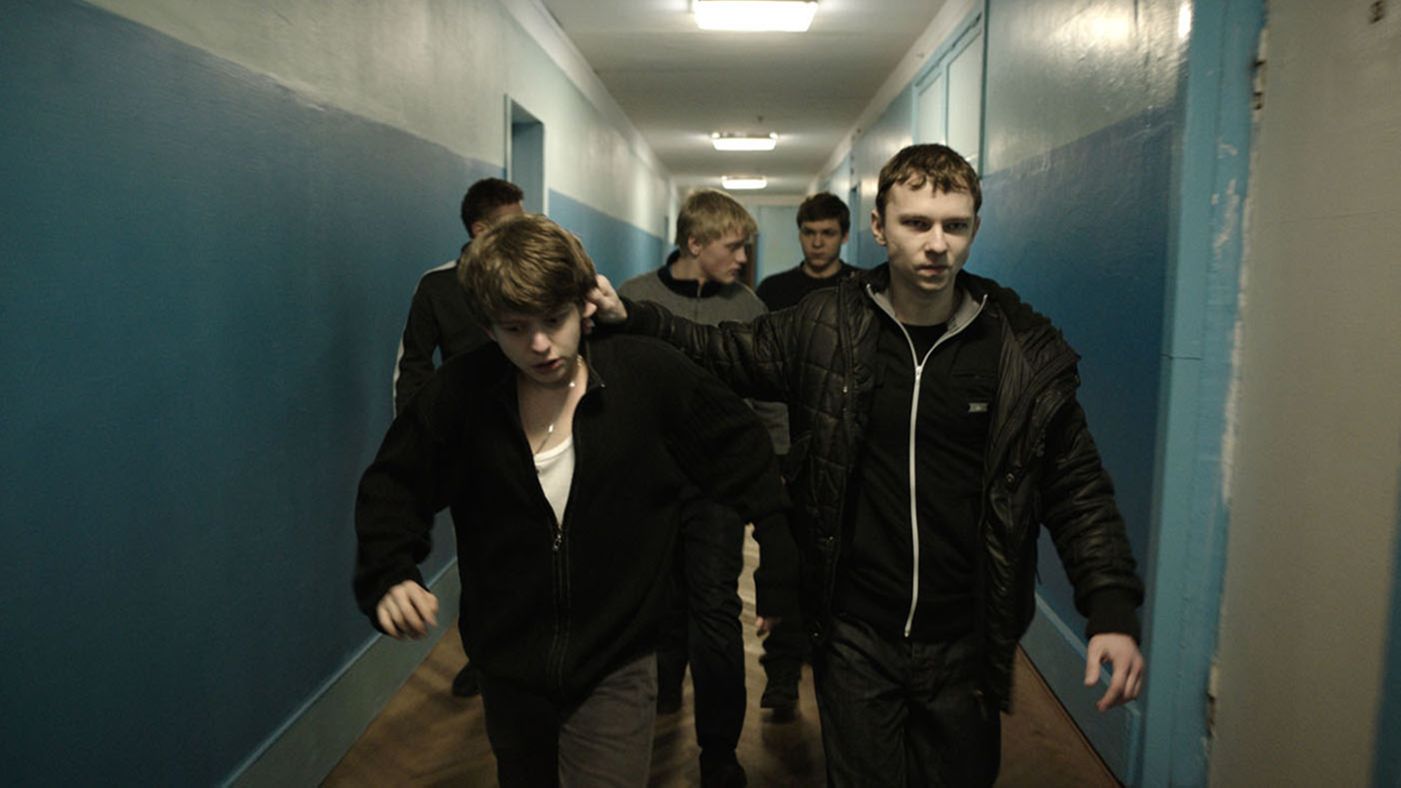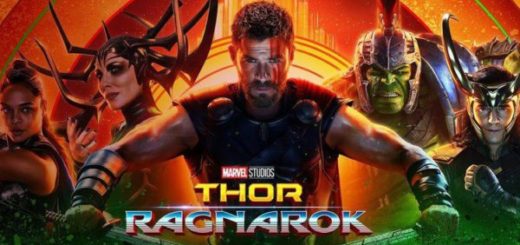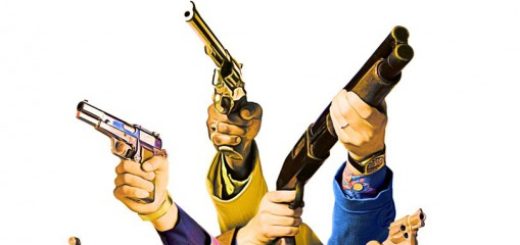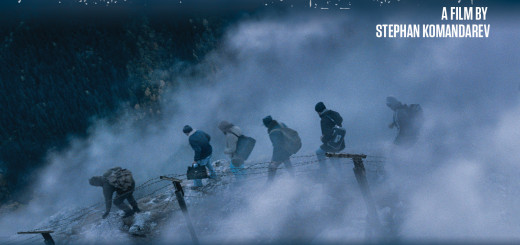THE TRIBE Review
Director: Miroslav Slaboshpitsky
Genre: Crime, Drama
Release: 2014
There’s a key scene at the beginning of THE TRIBE that teaches the viewer how to watch the rest of the picture, and the film’s powerful message rests solely on the audience’s willingness to pay attention long enough to learn from it. The world of THE TRIBE, in which deaf students communicate with each other and no subtitles are provided to let the viewer in on their conversations, is so entirely foreign with such unique social etiquette that the first scenes simply serve to show how one should follow the story’s twisted path. The film is bleak, but the fact that audiences come out on the other side with such a visceral understanding of a subculture they might otherwise have never even considered is an incredible testament to writer/director Miroslav Slaboshpitsky’s impeccable filmmaking.
Cypher circles pose a unique set of challenges
Summarizing specifics of THE TRIBE’s plot would only detract from experiencing the disturbing space it occupies; all anyone really needs to know about it going in is that it’s about a “tribe” of deaf students at a boarding school. What can be promised is that it will leave the viewer with a terrifying sense of the isolation and danger a deaf person confronts every single day. This is not a film for the weak of heart – the violence and moral indecency depicted will cause almost anyone to recoil in horror. Any information beyond this will only spoil the enjoyment of the shocking twists the narrative holds.
The opening title card warns over black about the lack of subtitles, and as ambient noise slowly crescendos the viewer is left uncomfortably aware that a deaf person would not hear it, that the noise is so casually taken for granted in our day-to-day life. In a sense, this is a true silent film; any sound heard is clearly added to benefit the viewer. For every door that opens offscreen or car engine that starts, the characters do not react in the slightest. There is no score and no dialogue for the entirety of the film. THE TRIBE forces the viewer to understand what it’s like to be left out of a conversation by making them watch exchanges they can’t comprehend.
Long takes that utilize tracking movements and lingering wide shots have long been a staple of arthouse cinema, but very rarely do they work as well as they do in THE TRIBE. Static wide shots that observe character interaction are almost always from a cold distance; the film refuses to cut to reaction shots or close ups of any kind to give easy clues as to characters’ emotions and intentions. The viewer has to pay enormously close attention to pick up on what exactly is happening in any given scene. By doing this, director Miroslav Slaboshpitsky captures the frustration of trying to follow spoken conversations between hearing people when you are deaf. The movie has enormous dramatic tension built into every scene because it’s impossible to know what’s going to happen next. This makes it shocking when characters suddenly perform actions the audience didn’t entirely have context for.
They were upset when he hadn’t heard the new Death Grips
This is a new kind of film because it has no predecessor in regards to how it tells a story, save for maybe a handful of Vimeo staff pick short films. It so intentionally doesn’t relay all the information to its audience and leaves so many blanks to be filled that what could be a heavy-handed social realist exploration of teenage violence becomes a deeply compelling drama. This is the kind of film that leaves a sick, painful weight in the pit of the stomach by its end, but within a few days that pit is replaced by a hunger to experience the film a second time. There’s a need to take in THE TRIBE again and again, no matter how brutal it might be, so as to understand how Slaboshpitsky pulled off such an original feat.
Verdict: Recommend

